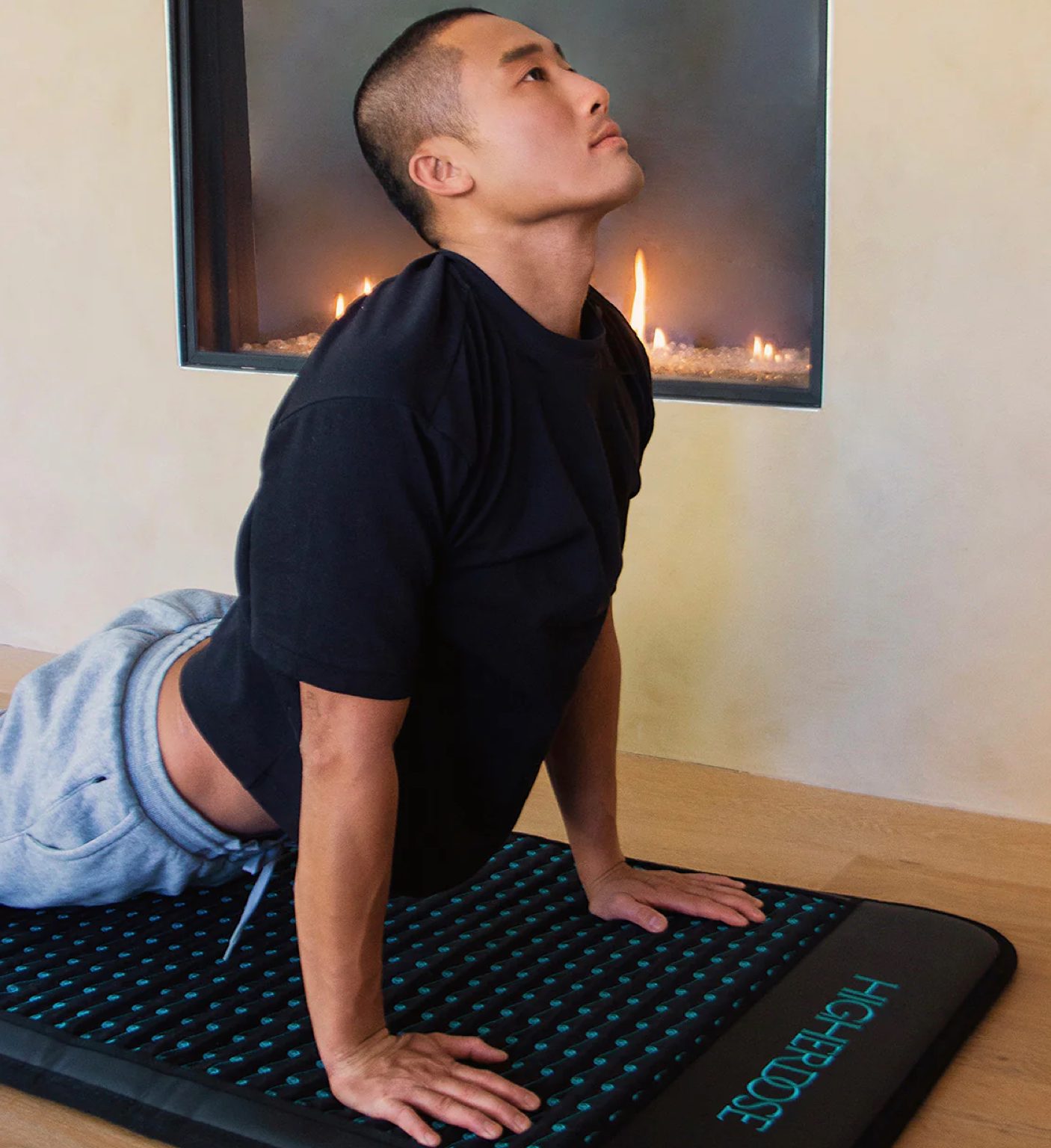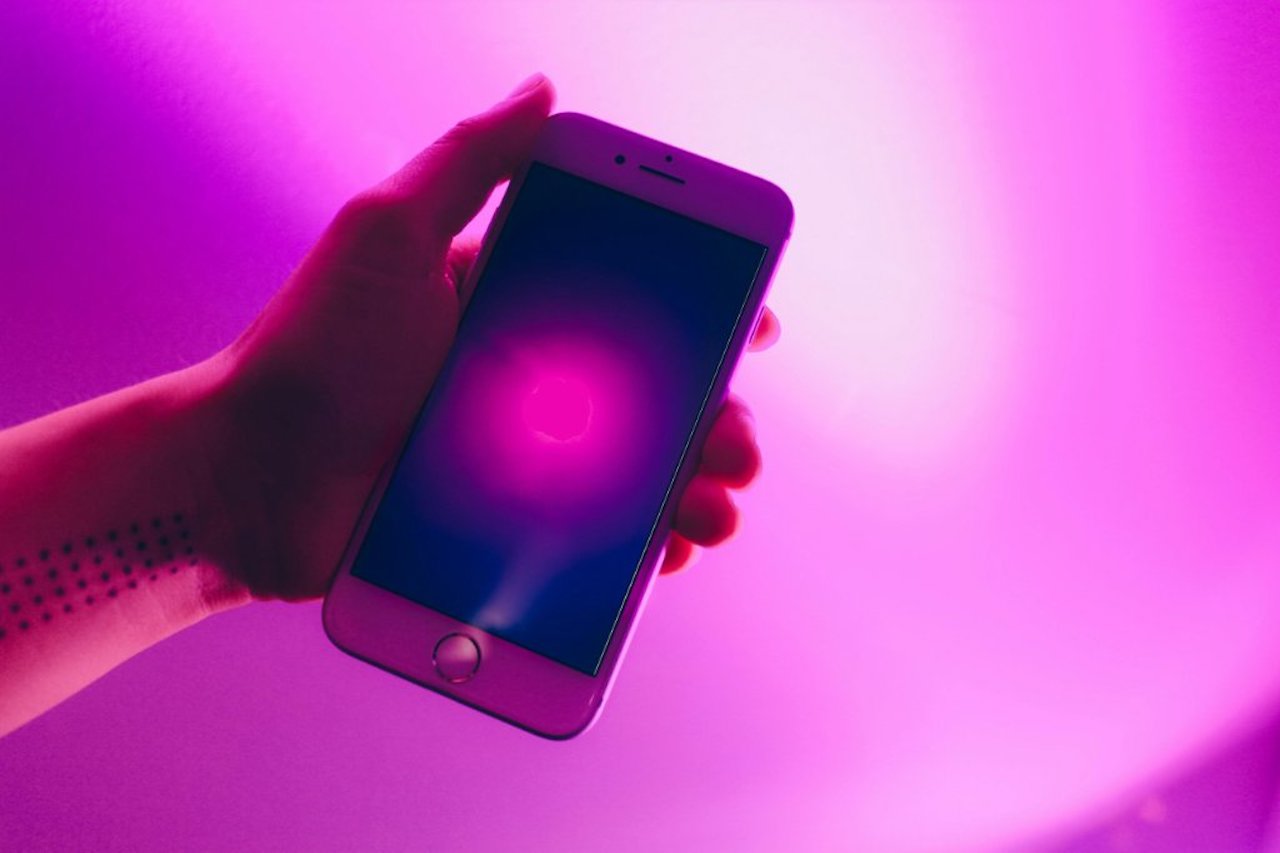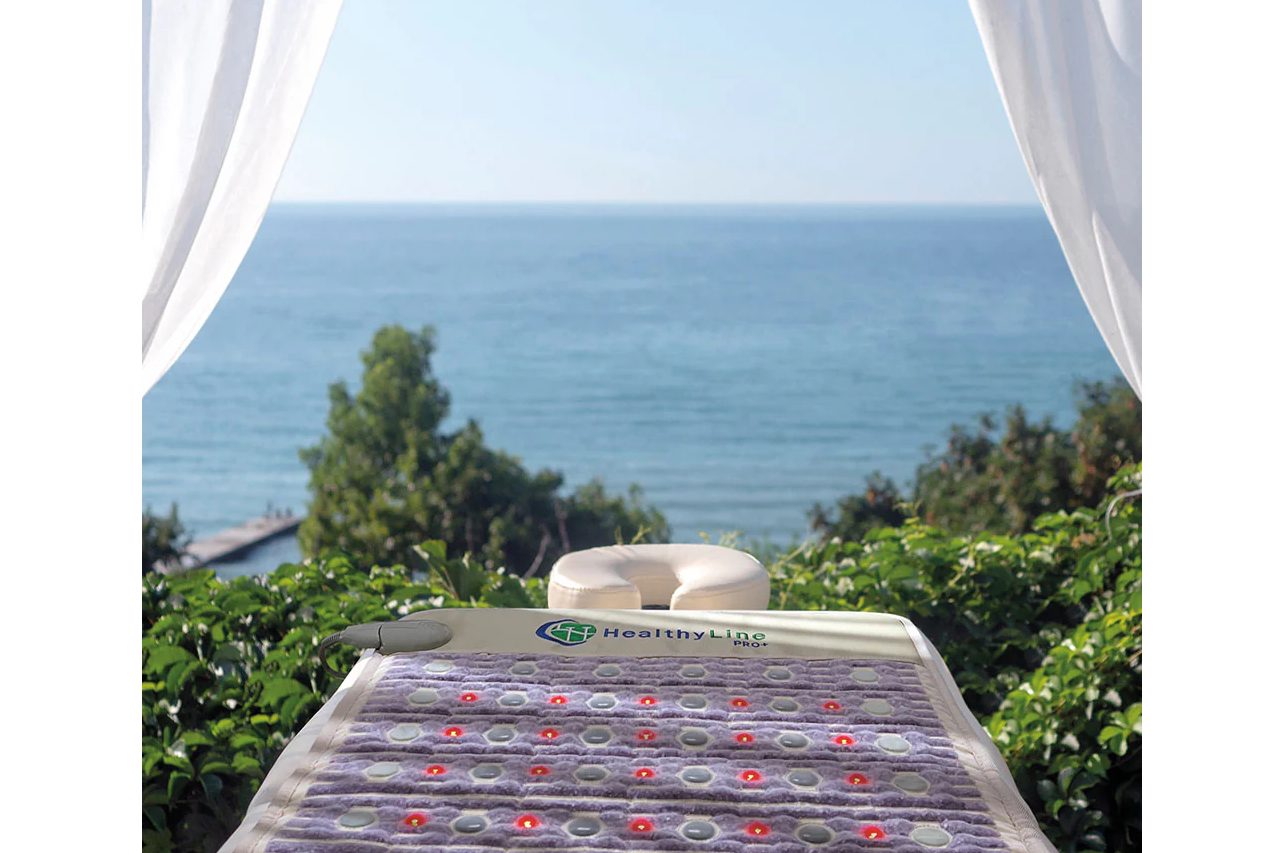- HOME
- Best PEMF Mats of 2025 – In‑Depth Reviews & Guide
- PEMF Mat Therapy for Chronic Pain
PEMF for Pain: How Pulsed Electromagnetic Therapy Reduces Discomfort
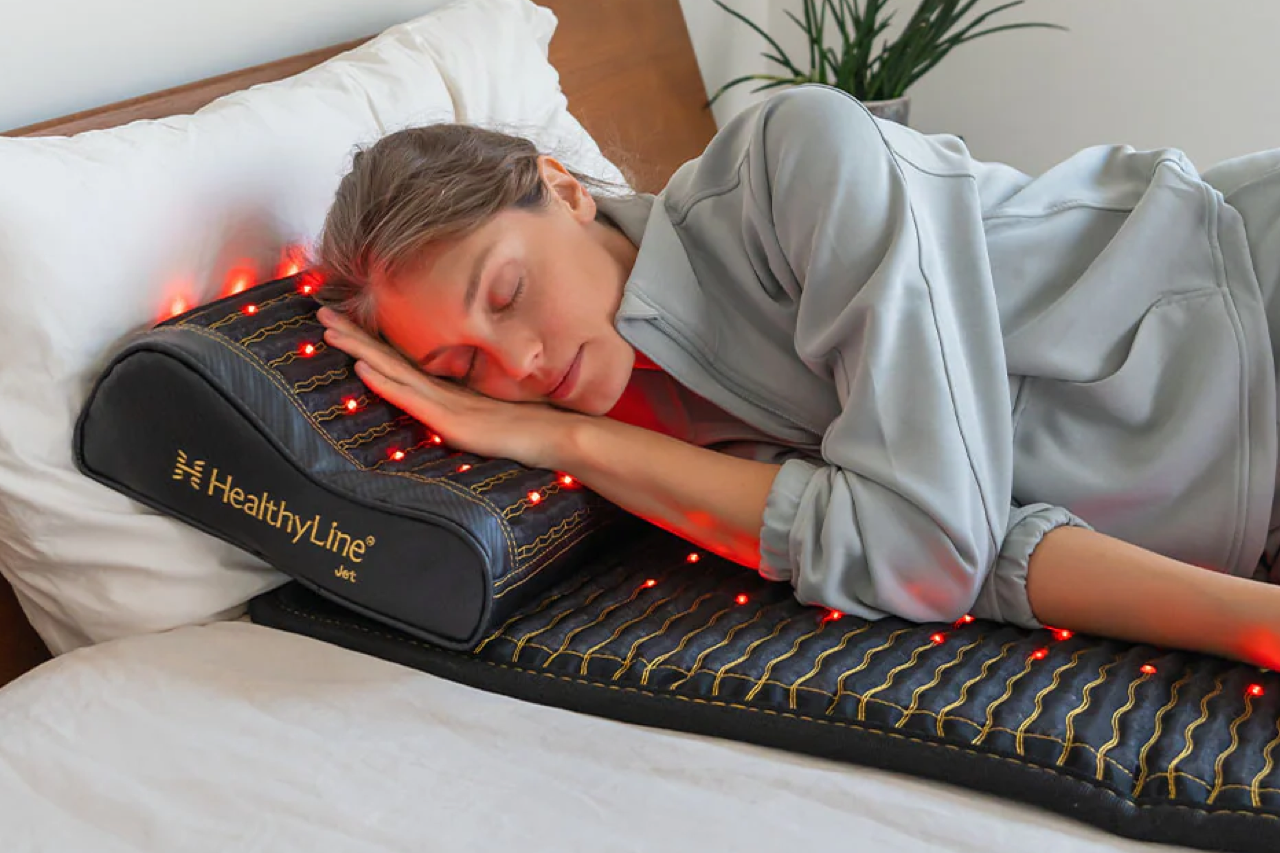
If you're struggling with persistent pain, whether it's in your back, neck, joints, or deeper from conditions like arthritis or fibromyalgia, you’re not alone. Pulsed Electromagnetic Field therapy, or PEMF, is a drug-free, non-invasive way to target pain at its source. But does PEMF really help with pain? The short answer: yes, for many people, it does. And for some, it’s been life-changing.
But how? And why? In this blog post, we’ll explore these questions and more, offering insights into how PEMF therapy may help you break free from the daily cycle of discomfort and restore a better quality of life.
Here's a quick rundown:
- How PEMF works for chronic pain relief
- PEMF vs. traditional pain treatments
- Why combine PEMF with infrared for chronic pain?
- Comparing PEMF-only vs. infrared PEMF mats
- Is infrared PEMF right for your type of pain?
- PEMF myths vs. facts
- PEMF Mats vs. Standalone Devices: Which is better for pain?
- What users say about infrared PEMF mats and pain relief
- Q and A about infrared PEMF mats
How PEMF Works for Chronic Pain Relief
The Science Behind PEMF and Pain Reduction

PEMF therapy works by delivering low-frequency electromagnetic waves deep into the body, stimulating cellular repair and reducing inflammation, both key drivers of bringing down chronic pain.
At the cellular level, PEMF enhances mitochondrial function and increases ATP (energy) production. This energizes cells to fix tissue damage more efficiently. For chronic pain conditions like fibromyalgia or joint pain, this means less inflammation, improved circulation, and faster recovery at the source of pain.
Learn more about PEMF mat therapy → PEMF Mat Therapy: Clinical Evidence & Application Guide
Scientific studies support these claims:
PEMF for Fibromyalgia (2022)
A single-blind randomized controlled pilot study involving 21 women found that low-energy PEMF therapy significantly reduced fibromyalgia pain scores and symptom severity over an 8-week period compared to placebo (p < 0.01) [1]. Participants also reported improvements in widespread pain and quality of life. The therapy was safe and well tolerated.
Limitations: The study’s small sample size and single-blind design limit the strength and generalizability of the findings. Larger, double-blind trials are needed to confirm these results.
PEMF for Osteoarthritis (2024)
A review of 17 randomized controlled trials with 1,197 patients found that PEMF therapy significantly reduced pain and improved joint function in osteoarthritis, particularly in the knee [2]. Pain levels dropped by up to 60%, and physical function improved by 42%. Some studies also reported better quality of life and reduced reliance on medication.
Limitations: Treatment duration ranged from 15 to 90 days, and different PEMF devices and settings were used, making comparisons difficult. Most studies lacked follow-up beyond three months, so long-term effects remain unclear.
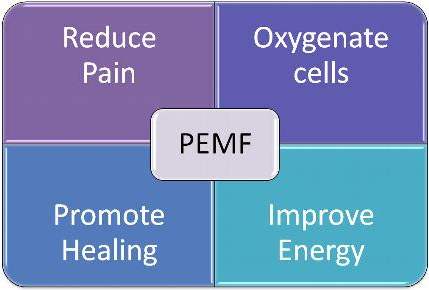
PEMF for Neuropathic Pain (2009)
A randomized controlled trial with 30 diabetic patients found that low-frequency PEMF therapy applied for 30 minutes daily over 12 days significantly reduced neuropathic pain and improved nerve conduction measures compared to the control group (p < 0.05) [3]. The study excluded patients with neuropathy from non-diabetic causes.
Limitations: The trial had a small sample size and a short treatment period, limiting conclusions about long-term effects and broader applicability.
PEMF for Low Back Pain (2023)
A review of nine randomized controlled trials involving 420 patients found that PEMF therapy significantly reduced pain and improved physical function in several studies compared to control groups [4]. No serious side effects were reported.
Limitations: Treatment protocols varied across studies, making results harder to compare. Most trials also lacked long-term follow-up, leaving the durability of benefits uncertain.
These studies demonstrate PEMF’s promising role in reducing pain across a range of chronic conditions. Such consistent positive outcomes and minimal side effects make PEMF a compelling, non-invasive therapy worth considering for chronic pain management.
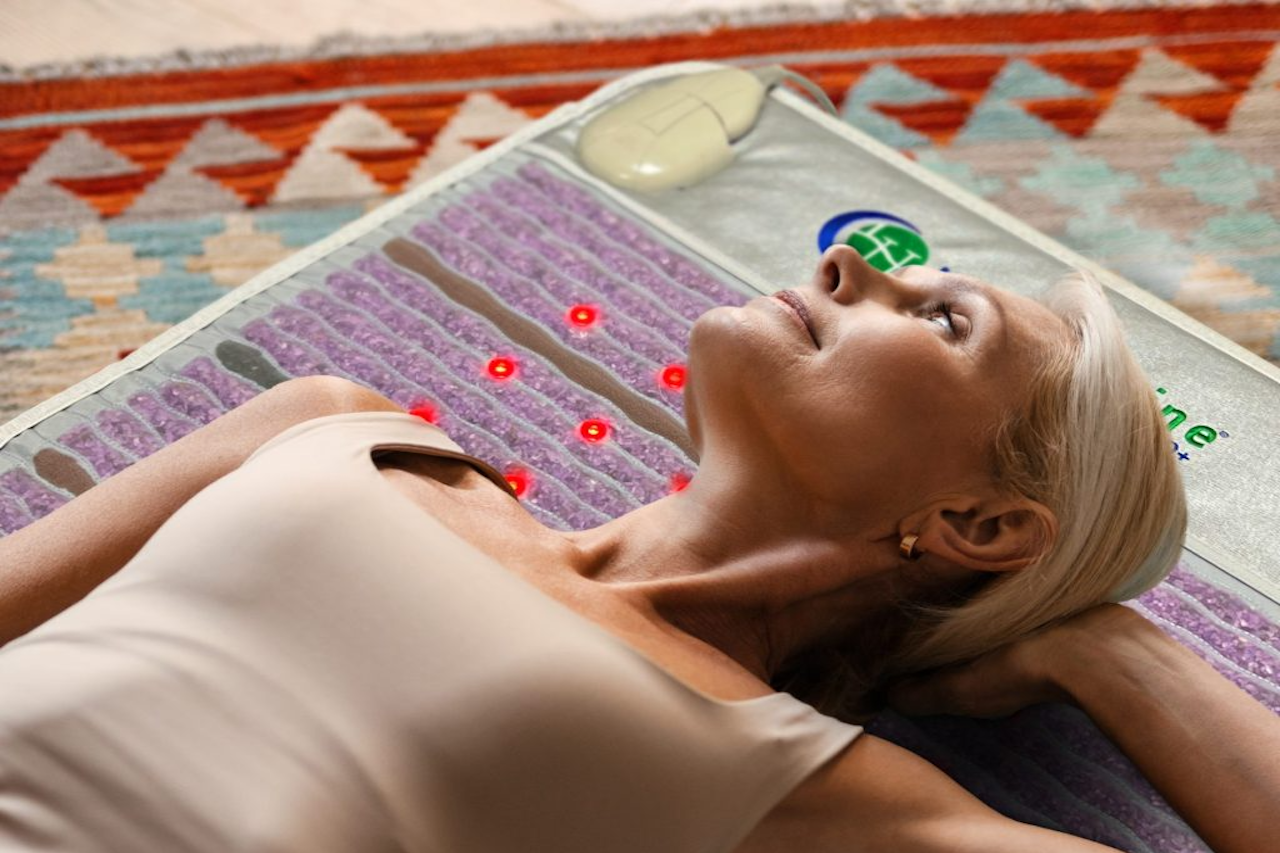
Managing osteoarthritis pain at home? Learn how HealthyLine PEMF mats can help. Click the blue links.
PEMF vs. Traditional Pain Treatments
PEMF therapy offers a fundamentally different approach to chronic pain than traditional treatments like NSAIDs, opioids, or even TENS units.
| Treatment Type | How It Works | Pros | Cons |
|---|---|---|---|
| PEMF Therapy | Stimulates cellular repair, reduces inflammation, improves circulation | Drug-free, non-invasive, treats root cause | Requires consistent use, upfront device cost |
| NSAIDs (e.g., Ibuprofen) | Blocks inflammation pathways | Fast pain relief | GI issues, long-term organ stress |
| Opioids | Blocks pain signals in the brain | Strong short-term relief | Highly addictive, not for long-term use |
| TENS | Distracts nerves with electrical signals | Immediate, surface-level relief | Only treats symptoms, not causes |
| Infrared Therapy (we’ll cover next) | Improves circulation through heat | Soothing and increases PEMF effects | Doesn’t repair cells alone |

What sets PEMF apart is its cellular mechanism. It doesn’t just numb pain; it supports the body’s natural healing response. While medication masks the sensation of pain, PEMF works to resolve the underlying cause.
And when combined with far infrared therapy, the results can be even more powerful, by optimizing blood flow and muscle relaxation for faster, deeper relief.
Why Combine PEMF with Infrared for Chronic Pain?
When managing chronic pain, therapy that targets multiple healing pathways often delivers the best results. That’s exactly why combining PEMF with infrared therapy creates a powerful synergy that gives deeper, faster relief and longer-lasting benefits.
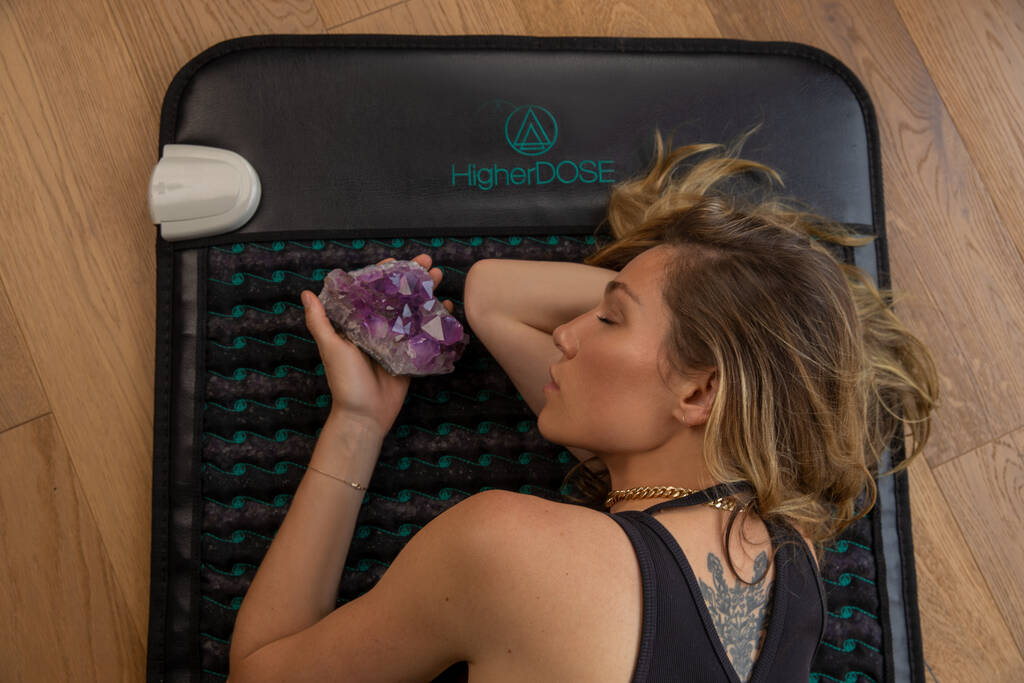
Infrared Therapy’s Role in Chronic Pain
Infrared therapy uses specific wavelengths of light to penetrate deep into tissues, generating gentle heat that improves blood flow and promotes muscle relaxation. This increased circulation helps reduce inflammation and stiffness commonly seen in conditions like chronic pain, neck and back pain, rheumatoid arthritis, and fibromyalgia. By warming deep tissue, infrared bolsters the body’s own natural healing processes, helping to loosen tight muscles and improve flexibility.
Studies have shown infrared therapy can effectively ease joint pain and muscle soreness, providing soothing relief without drugs or side effects. Clicking on the conditions above will take you to detailed pages on infrared therapy for each, including scientific studies and deeper insights.
The Powerful Combo: PEMF + Infrared for Pain Relief
PEMF therapy jumpstarts cellular repair by stimulating electromagnetic fields that improve nerve conductivity and reduce pro-inflammatory cytokines.
Infrared therapy increases this effect by improving microcirculation and providing soothing heat. Together, they tackle pain from multiple angles, and address symptoms as well as underlying causes.
This combination accelerates tissue regeneration and reduces inflammation faster and more completely than either therapy alone. For chronic pain sufferers dealing with persistent issues like low back pain, arthritis, or neuropathy, PEMF plus infrared offers a holistic, non-invasive way to regain comfort and mobility.
Learn how the infrared heat and the PEMF in these mats work together. For differences and benefits, see our post on PEMF vs. Infrared Therapy.

Advanced Multi-Therapy Mats (PEMF + Infrared + More)
Infrared PEMF mats often combine multiple therapies to relieve pain and heal. Some mats also include features like:
🔹 Photon Therapy (Red Light)
Many advanced mats use red or near-infrared light therapy to support skin repair, lower inflammation, and raise cellular energy.
🔹 TENS Therapy Pads
While not built into the mats themselves, some manufacturers offer small TENS pads such as the TheraPro Pad by Therasage that work alongside the mat to provide immediate pain relief through targeted electrical stimulation [5].
🔹 Gemstone Heat Therapy
Many mats include natural crystals like amethyst and tourmaline, both of which, when heated, help conduct infrared heat more effectively and emit negative ions believed to reduce inflammation and promote relaxation. Some mats even use up to 11 different crystals, carefully selected for their unique healing properties.
Because of the embedded healing crystals, these mats tend to be heavier, especially full-body versions. So, they work best in a fixed spot in your home. Learn more about gemstone heat therapy.
Comparing PEMF-Only vs. Infrared PEMF Mats
While PEMF-only mats deliver targeted electromagnetic pulses to support cellular repair and energy, infrared PEMF mats take it further by combining one, two, or even three additional therapies.
To show how these approaches differ in practice, we’ve compared two top-quality options: HealthyLine’s infrared PEMF mats and BEMER’s PEMF-only system. The table below highlights their key features and distinctions.
| Factor | HealthyLine | BEMER Mat |
|---|---|---|
| Price | $1,000–$2,500 |
$4,000–$6,000 |
| Therapies | FIR + PEMF + Negative Ions + Photon Light + Heat | PEMF-only |
| Ease of Purchase | Buy online, no middlemen | Sold only via independent distributors (MLM model) |
| Dimensions full body mat | 74″ x 28″ x 1.2″ | 74.8″ x 35.4″ x 0.4″ |
| Weight full body mat | 30.2 lbs including gemstones | 4.4 lbs |
| Best Place | Fixed spot like bed, sofa, or floor (yoga) | Designed primarily for bed use |
| Medical Research | FIR well studied (NIH-backed); PEMF less documented | BEMER is clinically studied |
| Warranty |
5-year limited 90-day free trial with full refund Commercial use allowed Transferable warranty |
3-year limited 30-day return window with 10% restocking fee if opened No commercial use allowed Non-transferable warranty |
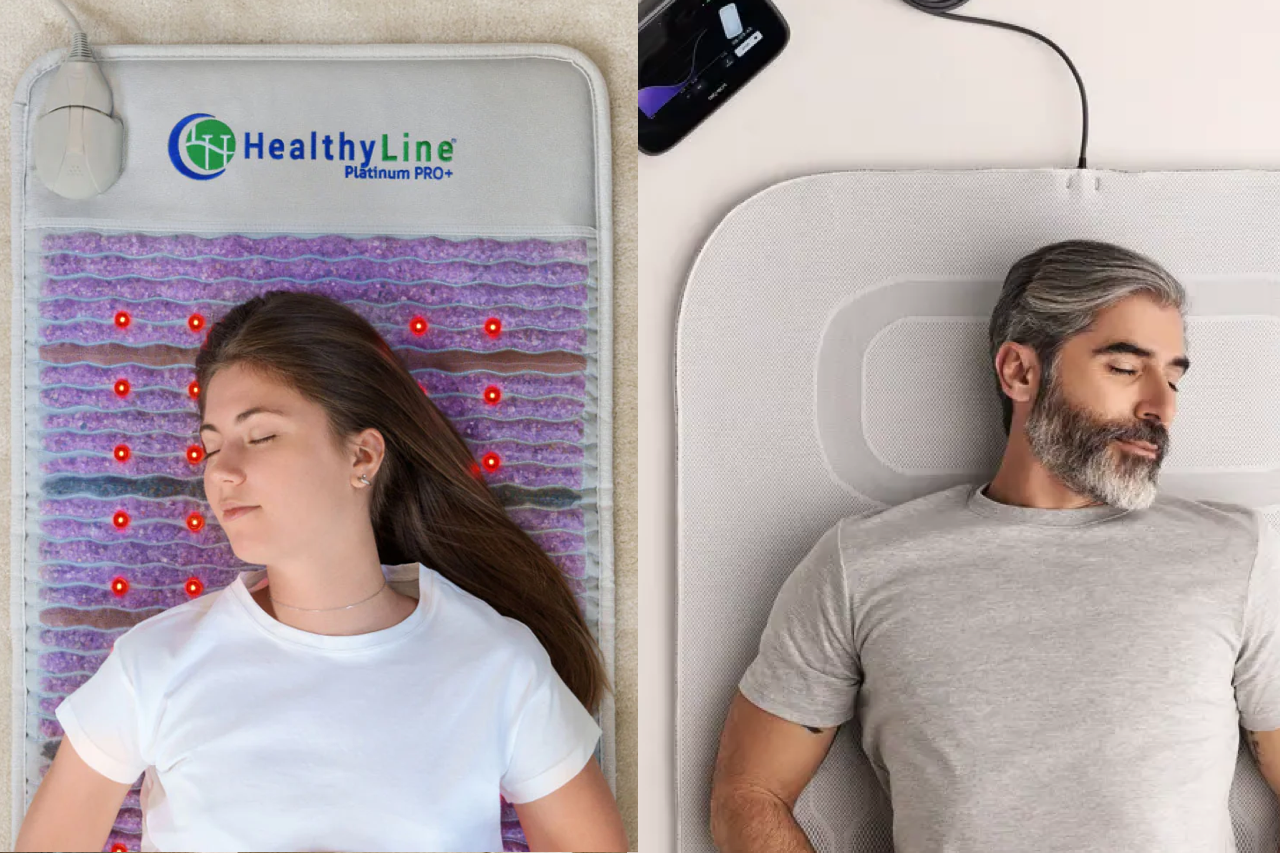
Review: HealthyLine vs BEMER: A Real Comparison of Two Leading PEMF Mats
Is PEMF + Infrared Right for Your Type of Pain?
As discussed above, PEMF combined with infrared therapy targets pain on multiple levels. PEMF tackles inflammation and heals damaged tissue, while infrared delivers a profound and soothing heat that relaxes muscles and improves circulation.
Together, they offer effective relief for many chronic pain conditions, including arthritis, back pain, fibromyalgia, and nerve discomfort.
What to Expect: Sensations, Side Effects & Safety
Most users experience a gentle warmth from the infrared therapy alongside a subtle tingling sensation from PEMF pulses. The treatment is painless and non-invasive, often producing feelings of relaxation and muscle loosening.
PEMF and infrared therapy are generally safe with minimal side effects. However, those with metal implants, pacemakers, or who are pregnant should consult a healthcare professional first. Mild dizziness or fatigue may occur initially but typically resolves quickly.
With regular use, many find pain reduction, better movement, and less dependence on medication. Following recommended usage guidelines will help you achieve the best results.

Curious how these two mats stack up?
👉 Read our full comparison: HigherDose PEMF Mat vs. HealthyLine TAJ Mat
Try Before You Buy: Trial Offers on Top Infrared PEMF Mats
If you’re considering an infared PEMF mat, some top manufacturers make it easy to try before you commit.
🔹 HealthyLine offers several popular models like the TAJ, Jet, Rainbow Chakra, and Platinum mat series, all backed by a 90-day trial period.
🔹 HigherDOSE provides a 120-day money-back guarantee on their Pro and Go mat.
You can find detailed reviews of these mats on our site to help you decide which fits your needs best (click blue links).
The table below highlights key differences between HealthyLine and HigherDose mats to help you choose the best PEMF + infrared therapy option for your needs.
| Feature | HealthyLine | HigherDOSE |
|---|---|---|
| PEMF Frequency Range | Customizable 0.3 – 30 Hz | 4 preset levels: 3, 7.8, 10 & 23 Hz |
| Infrared Type | Far Infrared | Far Infrared |
| Gemstone Therapy | Multiple stones (3 to 7 depending on mat) | Amethyst & Tourmaline only |
| Negative Ion Therapy | Yes | Yes |
| Additional Therapies | Photon Light | None |
| Mat Sizes/Models | Various: 20"x20" pads up to Full Pro (massage tables, king beds) | Two sizes: Half-body & Full-body |
| Warranty & Trial | 90-day trial, 5 years warranty + Lifetime Upgrade & Trade-In* | 1 year warranty + 120-day money-back guarantee |
| FDA Registration | FDA registered company | None |
| Price Range | $400 - $2,500 depending on model | Go Mat: $699; PRO Mat: $1,295 |
| Ideal For | Chronic pain, arthritis, fibromyalgia, circulation | General wellness focus |
HealthyLine discount: Get 10% OFF! Use code saunace10 when buying through our link
Saunace is supported by its audience. When you purchase through links on our website, we may earn an affiliate commission. Learn more.
PEMF Myths vs. Facts
PEMF therapy sparks debate. Some swear by its pain-relieving benefits, while others dismiss it as hype. Let’s separate fact from fiction with evidence-backed insights.
Is PEMF Just Placebo? Here’s What Science Says
Science says PEMF therapy is more than just a placebo. Studies show it reduces inflammation and supports cell repair, helping damaged tissue heal more effectively.
In a review of multiple high-quality clinical studies, people with osteoarthritis who used PEMF therapy experienced real relief [6]. These studies were randomized and placebo-controlled. This means they compared real PEMF treatment to fake or inactive versions. So, the results account for any placebo effect. People reported less joint pain, less stiffness, and more mobility compared to those who got sham treatments.
The improvements made a noticeable difference in everyday life. While the long-term effects on overall quality of life still need more research, the short-term benefits for pain and function are clear.
So no, PEMF isn’t just a placebo. It’s a proven therapy with real, physical results. PEMF therapy makes people feel better and it actually creates real, measurable changes in the body. These effects happen deep within the body, which is why PEMF has become a serious tool in chronic pain management.
Why Some People Don’t See Results (And How to Fix It)
When not everyone gets the pain relief they expect from PEMF the issue often lies in usage, device quality, or individual factors. Here’s what might be happening and how to improve outcomes:
🔹 Inconsistent Use
PEMF requires regular sessions for cumulative benefits. Skipping treatments or irregular use can delay results.
Fix: Stick to a consistent schedule (e.g., daily 15-30 min sessions).
🔹 Low-Quality or Weak Devices
Some PEMF mats or systems lack sufficient intensity or proper frequency ranges for deep tissue impact.
Fix: Research reputable brands with proven power output (e.g., check specs like Gauss strength and frequency range). 👉 Check our blog on Saunace.com for PEMF mat reviews.
🔹 Incorrect Settings
Using random frequencies won’t optimize results. Different pains respond to different PEMF ranges:
- Acute pain/inflammation: 10-20Hz
- Chronic pain/nerve repair: 1-10Hz
- Sleep/cellular repair: 0.5-3Hz
Fix: Match your device’s settings to your specific condition.
🔹 Dehydration or Poor Circulation
PEMF works best when cells are hydrated and blood flow is strong.
Fix: Drink water, move gently before/after sessions, and combine with therapies like stretching.
🔹 Unrealistic Expectations
PEMF isn’t a "one-session miracle." It’s more like exercise for your cells. Most notice changes in 2-4 weeks with consistent use.
Fix: Track progress over weeks, not days, and pair it with a holistic pain-management plan.

PEMF Mats vs. Standalone Devices: Which Is Better for Pain?
Choosing the right PEMF device for pain relief can be confusing. Should you go with a full-body mat or a targeted device? Let’s break down the pros and cons of each to help you decide.
| Type | Full-Body PEMF Mats | Standalone Devices |
|---|---|---|
| Best for | Chronic pain, stiffness, or large areas (back, hips, legs) | Joint pain (knees, shoulders), injuries, pinpointed discomfort |
| Pros |
Covers more surface area at once Hands-free—just lie down and relax Often includes heat therapy (infrared options) Better for consistent, daily use |
Focused energy on exact pain points Portable and easy to use on-the-go Often more affordable than mats |
| Cons |
Less precise for localized pain Bulkier and harder to travel with |
Requires manual positioning Not ideal for full-body pain |
Which One Should You Choose?
🔹 If your pain is widespread (fibromyalgia, arthritis, general stiffness): A PEMF full or half body mat provides better overall relief.
🔹 If you have specific trouble spots (bad knee, tennis elbow, neck pain): A smaller pad/wrap offers more direct treatment.
🔹 Some users combine a mat for daily maintenance with a smaller pad/wrap for flare-ups.
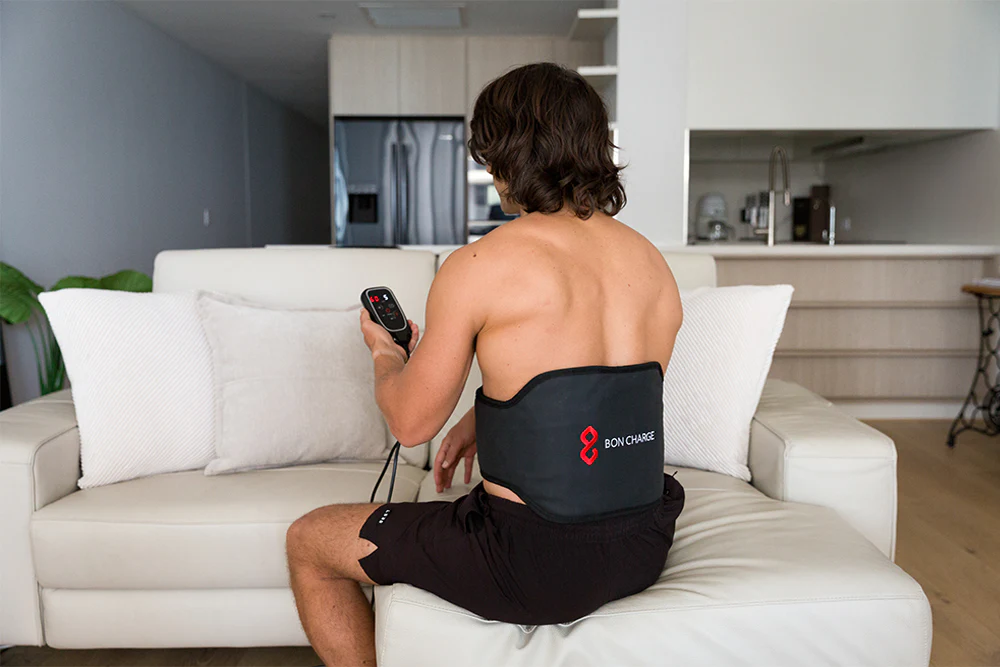
If your pain stems from intense training or overuse, explore how PEMF supports muscle recovery and reduces soreness in our post on PEMF for athletic recovery.
What Users Say About Infrared PEMF Mats and Pain Relief
User feedback (from manufacturer sites, Trustpilot, Amazon, and other reviews) often highlights how infrared PEMF mats reduce chronic pain, inflammation, and muscle stiffness. Many report improved mobility, faster recovery, and lasting respite from arthritis, back pain, and fibromyalgia.
Deep Pain Relief
Users describe a soothing warmth combined with PEMF’s electromagnetic pulses, which helps ease deep tissue pain, particularly in the back and joints.
"My chronic back pain improved within weeks. The infrared heat with PEMF is a game-changer!" – Mark T.
Reduced Inflammation
Many notice decreased swelling and joint stiffness with regular use, making PEMF mats ideal for arthritis and inflammatory conditions.
"I use it daily for arthritis pain, less stiffness, more flexibility." – Susan L.
better Recovery
The combination of infrared heat and PEMF promotes muscle relaxation, reduces soreness, and speeds up post-exercise recovery.
"After my workouts, recovery is faster. Muscle soreness is gone." – Jason R.
Non-Invasive Pain Management
Users prefer PEMF mats over painkillers or invasive treatments, citing long-term relief for chronic conditions like fibromyalgia and sciatica.
"Fibromyalgia pain is more manageable now. I sleep better too." – Diane K. and
"Combining PEMF and infrared helps my sciatica like nothing else." – Robert G.

Pets enjoy PEMF too — see our PETSPEMF mat review
frequently asked questions about Infrared PEMF Mats
Q: Are Infrared PEMF mats expensive?
A: While initial costs can be higher than simpler therapies, the combined benefits and long-term healing support often justify the investment.
Q: Will insurance cover these mats?
A: Most insurance plans don’t currently cover infrared PEMF mats. However, some may offer partial reimbursements under alternative therapy or wellness benefits. Many mats are FSA/HSA eligible, so be sure to check with your provider for details.
Q: How long until I see results?
A: Many users notice relief within weeks, but consistent use over several months maximizes benefits.
Q: Are cheaper mats just as good?
A: Not always. Quality features like adjustable PEMF frequencies, FDA registration, and added therapies (photon light, gemstones) often make a difference in effectiveness. For detailed reviews and comparisons, check out our blog at saunace.com.
Q: Is PEMF FDA-approved for pain?
A: Certain PEMF devices have FDA clearance for specific medical uses, such as bone healing or post-operative pain relief. However, most consumer PEMF mats marketed for general pain management or wellness are not FDA-approved as medical devices for pain treatment. They may be FDA-registered for safety but are not officially approved for diagnosing or treating pain conditions.

Q: How long does PEMF take to reduce pain?
A: Pain relief timelines vary; some users feel improvement within a few sessions; others need consistent use over several weeks for noticeable results. It depends on the condition and individual response.
Q: Are there any conditions where PEMF worsens pain?
A: PEMF is generally safe but should be avoided or used cautiously with metal implants, pacemakers, or during pregnancy. Always consult your doctor first.
Q: What’s the cifference between PEMF and red light therapy for pain?
A: PEMF targets cellular repair and nerve function, while red light therapy focuses on skin and superficial tissue healing. Both can complement each other.
Q: Can PEMF replace pain medications like NSAIDs or opioids?
A: Some studies show PEMF may reduce dependence on medications by managing pain naturally, but it’s not a direct replacement and should be used alongside medical advice.
Q: Do PEMF mats work better than localized devices for pain?
A: Full-body mats provide widespread therapy, beneficial for generalized pain, while localized devices target specific areas. Your choice depends on your pain type.
Q: Is PEMF safe for home use?
A: For key safety considerations, potential contraindications, and general guidelines ensuring a safe and effective PEMF therapy experience at home, check out our comprehensive guide.
Still have a question? Send us a note. We’re happy to help.

Now it’s your turn to explore what PEMF combined with infrared therapy can do for your comfort and recovery. Whether for managing pain or enhancing overall health, considering quality infrared PEMF mats may be a valuable step.
Keep in mind, PEMF helps ease symptoms but isn’t a cure. For ongoing pain, always consult your healthcare provider for personalized care. Meanwhile, stay consistent with your therapy, maintain healthy habits, and take good care of yourself.
Saunace.com publishes reviews and usage guides for infrared and PEMF devices to help readers compare options and use them safely; see the About page to learn how we research and evaluate products.

Sam Everhart
Publised: June 2025
Interested in learning more about the benefits and technology behind these mats? Explore the following blog posts
References
1. Giovale M, et al.. Low-energy Pulsed Electromagnetic Field Therapy Reduces Pain in Fibromyalgia: A Randomized Single-blind Controlled Pilot Study. Rheumatol Immunol Res. 2022 Jul 6;3(2):77-83. doi: 10.2478/rir-2022-0013. PMID: 36465321; PMCID: PMC9524818. https://pmc.ncbi.nlm.nih.gov/articles/PMC9524818/
2. Cianni L, et al.. Current Evidence Using Pulsed Electromagnetic Fields in Osteoarthritis: A Systematic Review. J Clin Med. 2024 Mar 28;13(7):1959. https://pmc.ncbi.nlm.nih.gov/articles/PMC11012419/
3. Graak V, Chaudhary S, Bal BS, Sandhu JS. Evaluation of the efficacy of pulsed electromagnetic field in the management of patients with diabetic polyneuropathy. Int J Diabetes Dev Ctries. 2009 Apr;29(2):56-61. https://pmc.ncbi.nlm.nih.gov/articles/PMC2812751/
4. Kull P, Keilani M, Remer F, Crevenna R. Efficacy of pulsed electromagnetic field therapy on pain and physical function in patients with non-specific low back pain: a systematic review. Wien Med Wochenschr. 2025 Feb. https://pubmed.ncbi.nlm.nih.gov/37999784/
5. Cleveland Clinic, Transcutaneous Electrical Nerve Stimulation (TENS), https://my.clevelandclinic.org/health/treatments/15840-transcutaneous-electrical-nerve-stimulation-tens
6. Yang X, He H, Ye W, Perry TA, He C. Effects of Pulsed Electromagnetic Field Therapy on Pain, Stiffness, Physical Function, and Quality of Life in Patients With Osteoarthritis: A Systematic Review and Meta-Analysis of Randomized Placebo-Controlled Trials. Phys Ther. 2020 Jul 19;100(7):1118-1131. https://pubmed.ncbi.nlm.nih.gov/32251502/

